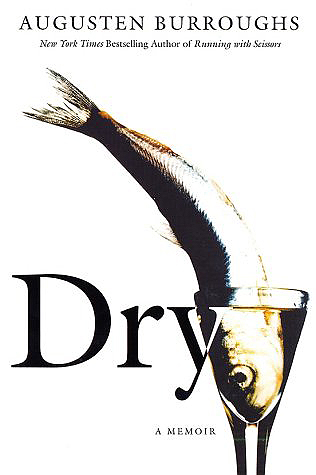The fine line "Dry" walks
Augusten Burroughs' 2003 memoir Dry (now bound for the Showtime network) walks a fine line between fact and fiction. Though excellently written in a strong first-person style, he takes pains to note that he has changed names, combined characters and compressed and re-created events. His candor is admirable, but his disclaimer gives me pause. How much is true and how much is fiction? Is the coffin-making friend he meets for drinks at the beginning a real person or a composite of two or three?
The factual changes made in the pages of Dry bring up another question: Are they so extensive they make the book autobiographical fiction? In my opinion they do. For example, in this bit of memoir, only two names are changed. Otherwise everything is as true as I remember it. In this example, no names are mentioned but otherwise it is told straight. This, in my view, makes these two pieces "non-fiction."
On the flip side of the coin, I recently wrote a short story based on an event that happened to me. Reconstructed personal thoughts and emotions abound, as well as details like what the weather was like the day it happened. This makes it "fiction" by default, and so it is autobiographical fiction. I would not dream of passing it off as a bit of memoir, even though I swear on a stack of Bibles the event dramatized is 100 percent true.
Other memoirs have been questioned. Most notably John Steinbeck's Travels with Charley like in this New York Times article. At least Burroughs was up-front about the fact changes in his book. Nevertheless, changes of some sort are inevitable in memoirs. Names have to be changed lest the author suffer a lawsuit. There are also matters of privacy, which means the writer has every right to deem some of their life experiences not for public consumption. Still, I myself prefer to save reconstructed events, conversations, etc. for autobiographical fiction and tell it straight in memoir-style writing. What about you? And do you care if an author changes things in their memoirs?
Image courtesy Wikimedia.
